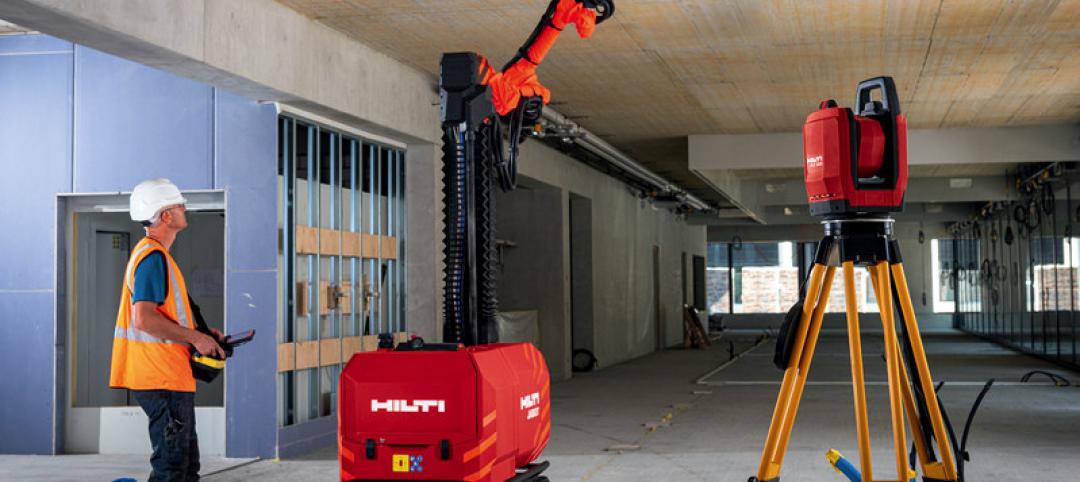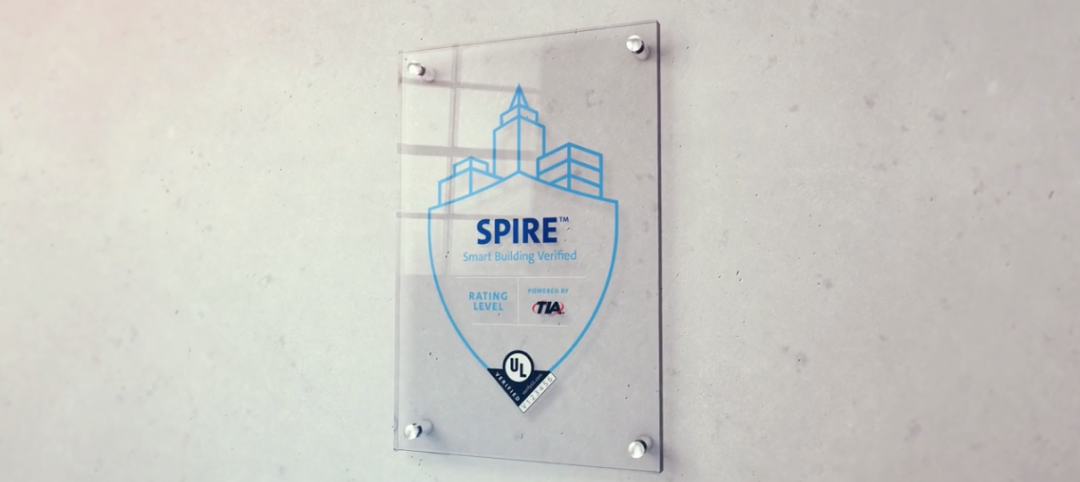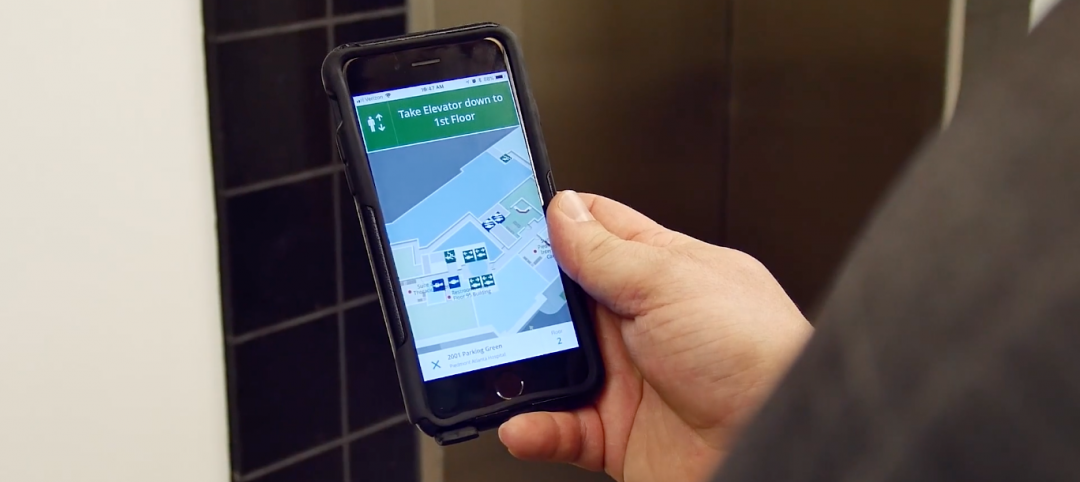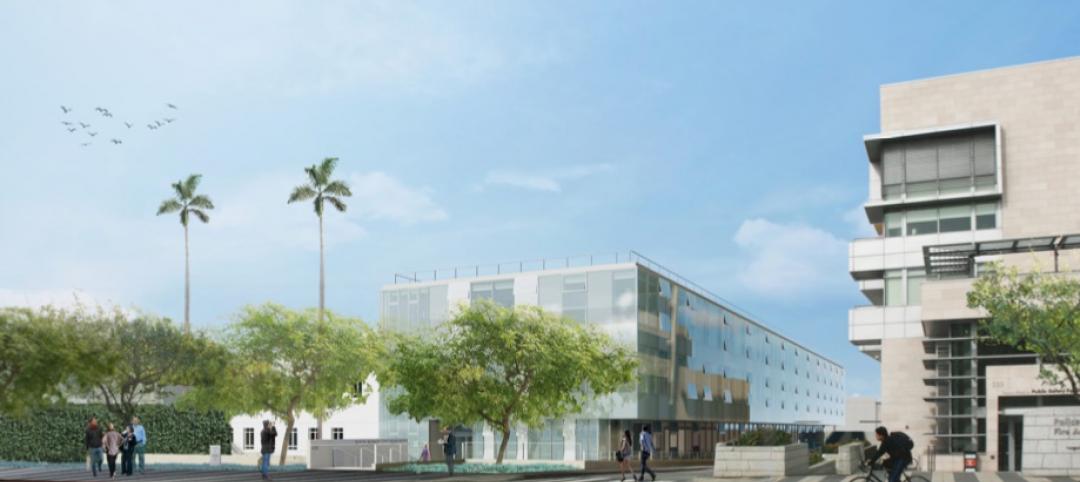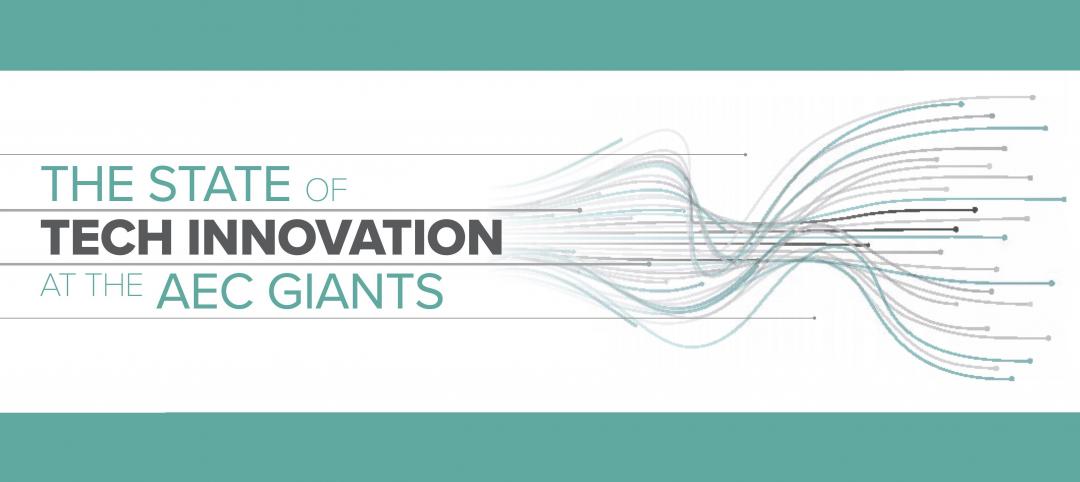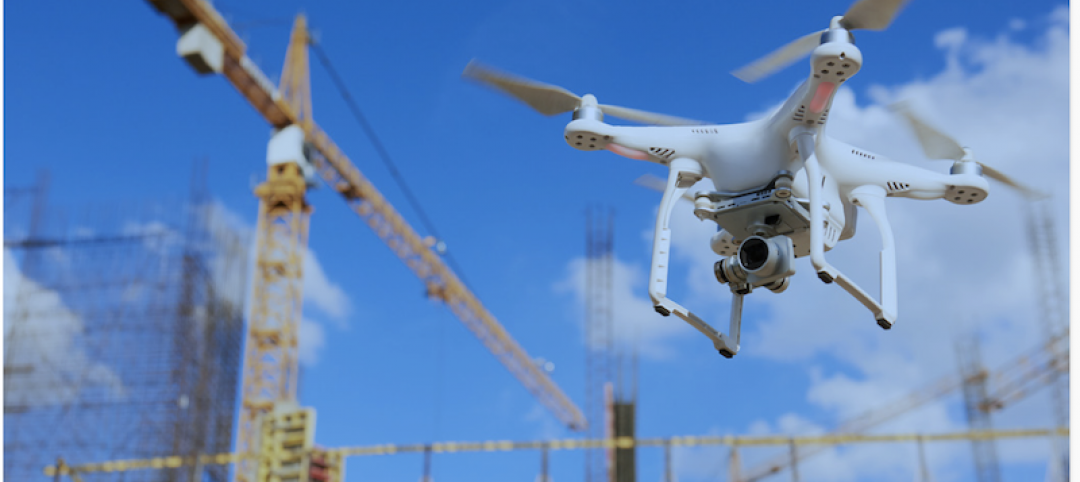Besides being one of the more famous cases of breaking and entering, what is the one thing Goldilocks is known for? No, not her love of porridge or under-the-covers naps. It is her persnickety nature that shines through most and, as much as we may not want to admit it, we all have a little bit of that Goldilocks mentality in us.
Especially when it comes to shared spaces like offices. For some it’s too hot, for others it’s too cold. It’s too bright, too dark, too loud, or too quiet; in a given office, how many people are actually comfortable with their surrounding environment? In a supposed place of productivity, such as an office, it isn’t just an inconvenience to be uncomfortable; it can quickly become a hindrance to getting work done.
But what’s the solution? We aren’t all as fortunate as our friend Goldilocks and have a few different options to pick from in order to find the one that best suits us. Or are we? Many offices have begun to implement an open office floor plan, meaning there are no assigned seats or workspaces. You can change where you sit and work on a day-to-day or hour by hour basis, meaning if it is too noisy or cold in one area, its possible to just pick up and move to another quieter or warmer area.
But therein lies the next issue, how do you find that quieter, warmer spot? That’s where Goldilocks comes in. No, not the Goldilocks, but the proprietary sensor technology developed by NBBJ to help employees find the perfect spot in the office, the one that is just right.
Inside its 140 Broadway offices in New York City, NBBJ installed over 50 sensors to collect data and track light levels, humidity and motion, and sound. According to NBBJ, they are the only company to incorporate sound into a sensor of this type. And considering the fact that noise is the number one complaint in the workplace, this addition of sound sensors seems like one of those why-hasn’t-anyone-done-this-before type additions.
So, where does all of this information the sensors are collecting go? Right to the accompanying app (compatible with Apple or Android smartphones) in real-time. If you get to the office and decide you require a workspace that is bright and warm, simply fire up the app, set the parameters to warm and bright, and you will be shown the best spots in the office that match exactly what you are looking for.
Not only are these sensors a solution for employees to use on a daily basis, but the information gathered, especially the information about sound, can also be used to better design spaces in the future.
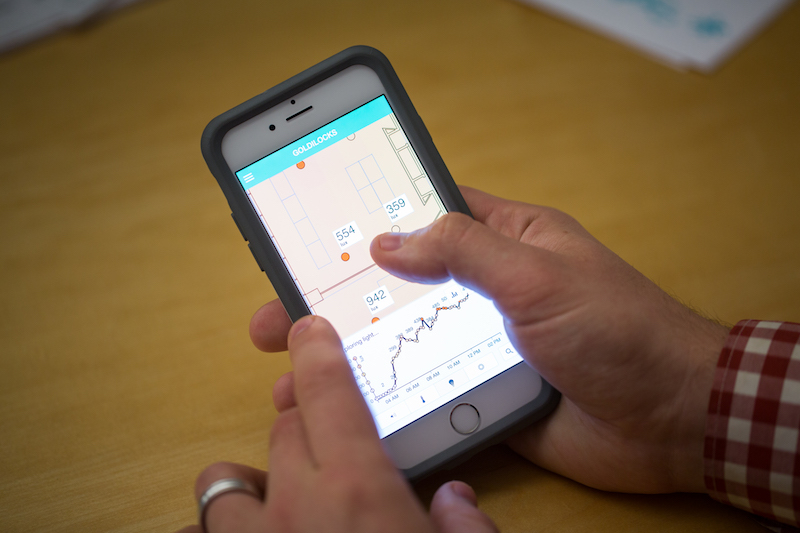 Photo courtesy of NBBJ
Photo courtesy of NBBJ
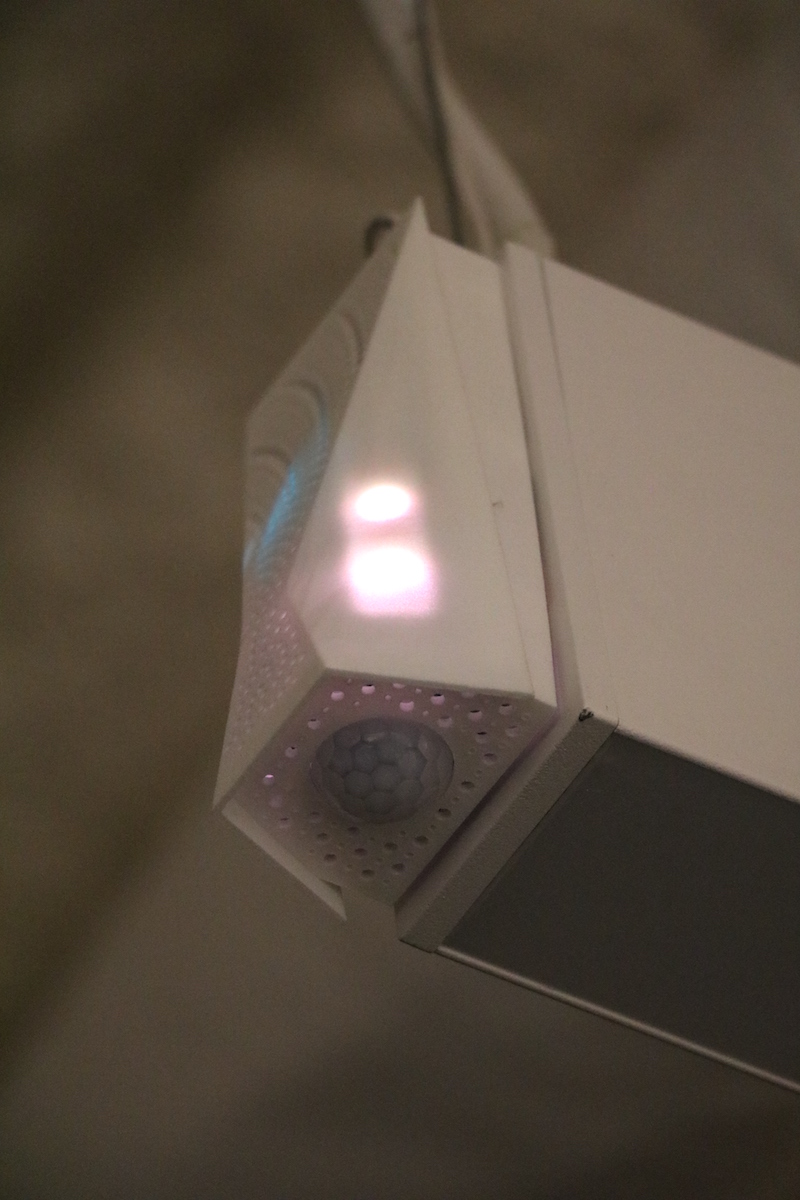
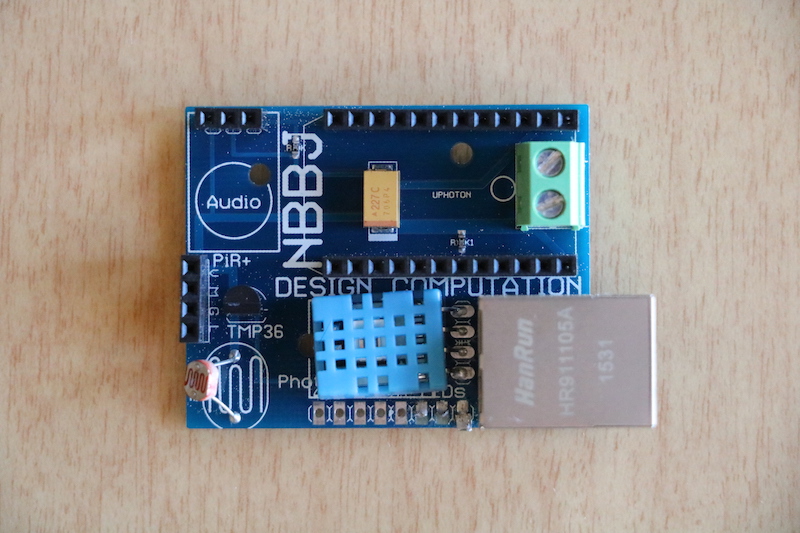
Related Stories
Smart Buildings | Nov 20, 2020
The Weekly show: SPIRE smart building rating system, and pickleball court design tips
The November 19 episode of BD+C's The Weekly is available for viewing on demand.
AEC Tech | Oct 28, 2020
Meet Jaibot, Hilti's new construction robot
The semi-autonomous robot is designed to assist MEP contractors with ceiling-drilling applications.
Smart Buildings | Oct 26, 2020
World’s first smart building assessment and rating program released
The SPIRE Smart Building Program will help building owners and operators make better investment decisions, improve tenant satisfaction, and increase asset value.
Building Tech | Jun 16, 2020
thyssenkrupp Elevator launches forward-looking technologies for a more comfortable and secure mobility experience
To ensure peace of mind for passengers, the company is focusing on three pillars: hygiene, social distancing and touchless technologies.
Healthcare Facilities | Mar 9, 2020
Mobile wayfinding platform helps patients, visitors navigate convoluted health campuses
Gozio Health uses a robot to roam hospital campuses to capture data and create detailed maps of the building spaces and campus.
University Buildings | Mar 9, 2020
Auburn University, Robins & Morton open Construction Field Laboratory
Robins & Morton and Auburn University’s College of Architecture, Design and Construction (CADC) recently celebrated the dedication of the Robins & Morton Construction Field Laboratory.
Green | Mar 9, 2020
BuroHappold commits to all new building projects achieving net-zero carbon by 2030
The engineering firm also launched a long-term partnership with ILFI.
Modular Building | Feb 16, 2020
On the West Coast, prefab gains ground for speedier construction
Gensler has been working with component supplier Clark Pacific on several projects.
AEC Tech | Feb 13, 2020
Exclusive research: Download the final report for BD+C's Giants 300 Technology and Innovation Study
This survey of 130 of the nation's largest architecture, engineering, and construction firms tracks the state of AEC technology adoption and innovation initiatives at the AEC Giants.
AEC Tech | Jan 16, 2020
EC firms with a clear ‘digital roadmap’ should excel in 2020
Deloitte, in new report, lays out a risk mitigation strategy that relies on tech.



